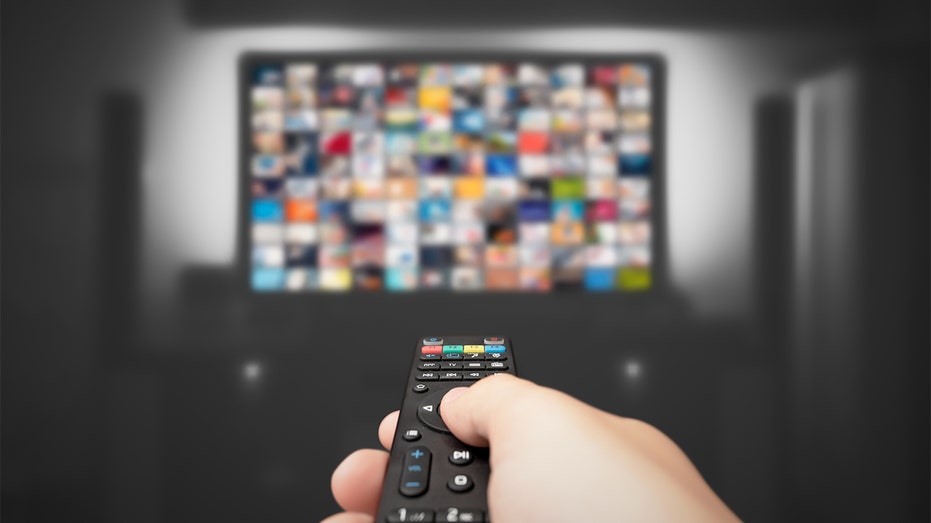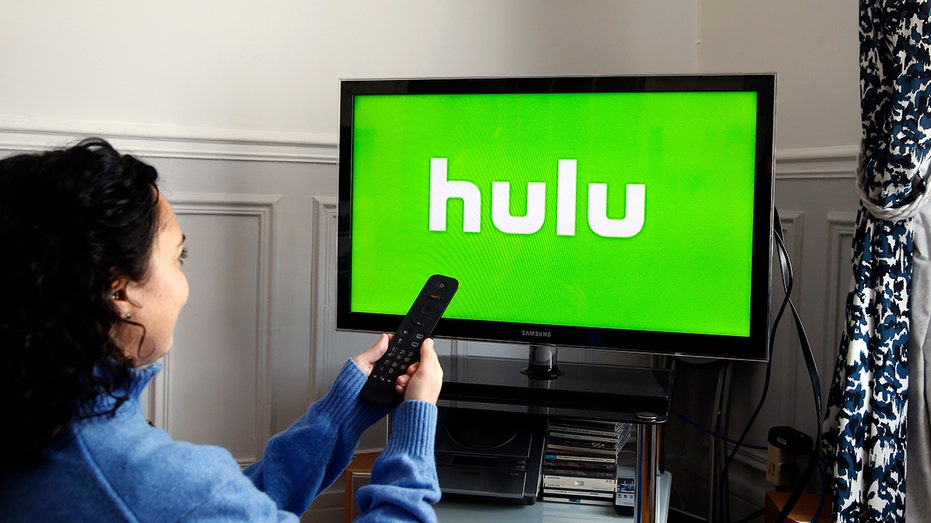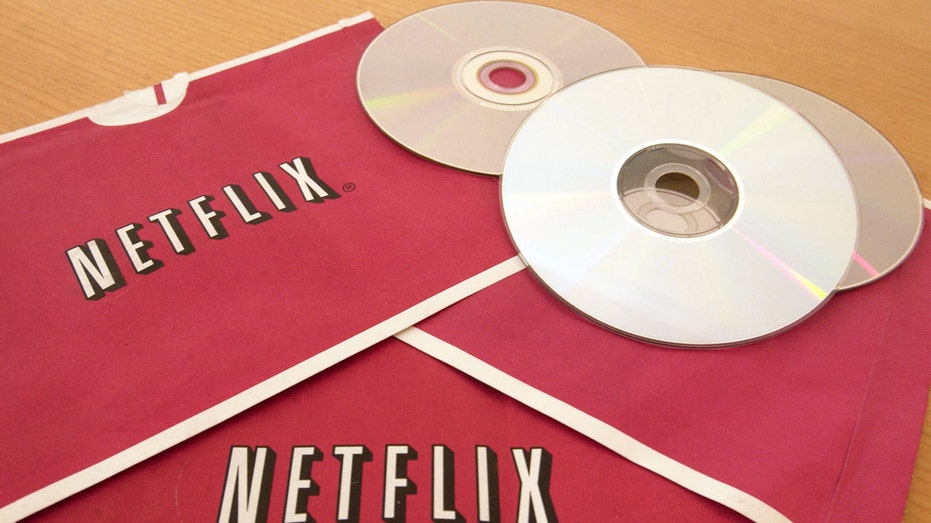'Reinventing history': Experts warn the end of physical media will give tech giants even greater control
Experts say a future ruled by streaming and digital content poses a serious threat of censorship
Bipartisan efforts needed to thwart Big Tech censorship: Darrell Issa
California Rep-elect Darrell Issa evaluates the relationship between the government and Big Tech on 'The Evening Edit.'
Retailers are slowly moving away from physical media to pursue ventures in the digital space, and experts warn this shift could lead to significant tech censorship, allowing streaming giants the power to have greater control over history and culture.
Barna William Donovan, a professor and the director of M.A. in Communication and Public Relations at Saint Peter's University, said he believes the move toward streaming content and the elimination of physical media poses "a serious threat" of censorship and could be a danger to our culture.
American consumers spend approximately eight hours daily with digital media, roughly double the time spent with traditional physical formats. The shift toward digital media in the country began in 2018 and has been growing ever since, according to Statista.
Currently, when people "buy" digital content, they do not actually own the film or song in the same way they would own physical VHS tapes, DVDs or CDs. When a user pays for a digital download, legally, the content producers have the right to limit access to said content or remove it outright.
‘SOCIAL DILEMMA’ STAR SAYS META LAWSUIT WILL HAVE 'LASTING IMPACT,' COMPARES FACEBOOK TO BIG TOBACCO

As retailers move towards a digital future, experts warn that an end to physical media could allow tech companies to have greater control over culture and content. (iStock/CyberGuy.com / iStock)
"Until now, many people simply worried about whether or not their digitally purchased content might disappear if they cancel their subscription to the streaming service," Donovan said. "Unfortunately, not many people have considered a much more insidious threat posed to our culture by the push to eliminate the ownership of physical media."
Given the current state of media ownership, Donovan said it is not unreasonable to assume a movie studio or record company could take away access if they find themselves in the "crosshairs of the culture wars."
Ari Lightman, a professor of digital media at Carnegie Mellon University, said one of the reasons for this move is that it is more costly for a company to create and distribute a physical copy versus a digital one.
He noted that a move to digital can also benefit the consumer in terms of cost. While many companies rely on a subscription-based model for digital content, often these services are heavily discounted or even free to the consumer because of ad support.
Digital content also allows for much quicker updates that provide transparency to a customer, such as a newspaper, which can instantly offer up retractions or editor's notes.
GOOGLE FACING $6 BILLION LAWSUIT OVER INFORMATION RELATED TO 'NFL SUNDAY TICKET' DEAL

A man flips through digital media content from various streaming platforms. (iStock / iStock)
Lightman suggested that there could be greater future experimentations on the interplay between physical and digital media, which has already been integrated into the automobile industry with vehicle software updates.
Despite these potential benefits, Lightman expressed concern about how companies may choose to deal with content deemed damaging to their bottom line. He said this could have larger implications for how history is recorded if the content is altered or removed.
"It's going to be written about by the people that have censored it," he said.
A more measured approach, he suggested, could be an instance where a company has the original content but puts a note stating it no longer reflects the company's value, and they are merely leaving it up for historical value.
Lightman surmised that the way companies adapt to these issues would be a balancing act where industry leaders need to stress that the messaging of old content does not reflect current reality or values in society, but understanding how it was portrayed needs to be understood, chronicled and accessed by the people living today.
"You have to have pretty good faith in society and advocates for your brand to go out and tell the story that your company is racist, misogynistic, narcissistic, all of these sorts of things, but this is how the information and content was captured or portrayed at this period of time for historical quotient," he added.
DISNEY RAISING PRICES OF DISNEY+, HULU AD-FREE PLANS FOR 2ND TIME IN A YEAR

The Hulu media service provider's logo is displayed on a television screen. (Chesnot/Getty Images / Getty Images)
Noting recent examples, such as Warner Bros.' cancelation of Pepe Le Pew cartoons, outcries against the "nonconsensual" kiss of Snow White, or the publishers of Roald Dahl books censoring themselves, Donovan said it is "perfectly realistic" to imagine content taken away or edited by the owners to appease "the latest throng of protesters throwing temper tantrums on social media."
Kaitlin Puccio, a lawyer and ethicist with a background in entertainment, also expressed concern about the recent trend in publishers releasing newly edited versions of classic books.
"When other people control how we consume media, they effectively control what we consume," said Puccio, who also works as a teaching associate at Columbia and a guest lecturer at NYU Law.
"If I own physical copies of books and keep them in a personal library in my home, it is highly unlikely that someone is going to decide to dispossess me of half of them for murky reasons. If that entire library consists of e-books rather than physical books, it is much more likely that I could lose access to half of my collection," she added.
Some retailers have announced plans to move away from physical media in the coming years.
NETFLIX OFFICIALLY TERMINATES DVD RENTAL SERVICE WITH FINAL MAILINGS: 'END OF AN ERA'

Best Buy will stop selling physical DVDs and Blu-rays in early 2024. (Reuters Photos)
In October, Best Buy confirmed that it will end the sale of Blu-rays and DVDs in early 2024, both in-store and online. The retailer will maintain the sale of physical copies of video games for now.
In a statement to WCCO, Best Buy said: "To state the obvious, the way we watch movies and TV shows is much different today than it was decades ago. Making this change gives us more space and opportunity to bring customers new and innovative tech for them to explore, discover and enjoy."
A month earlier, Netflix shuttered its red envelope service, ending the DVD-by-mail service that put the company on the radar.
Highlighting recent state lawsuits against Meta, Puccio said it is easy to imagine consumers pushing tech companies to impose an automatic cutoff for hours spent on their platform. However, she said this move would strip people's "autonomy" to determine how much media they consume and what media they consume.
THE END OF FREE RIDES: HOW NETFLIX IS TACKLING ACCOUNT SHARING

Netflix red envelopes carrying DVDs arranged on a desk. (Daniel Acker/Bloomberg via Getty Images / Getty Images)
"If I find a video interesting and want to find a video that presents the other side of the argument, Meta, for example, might determine that I've spent enough time consuming media that day and prevent me from watching more videos — which ultimately prevents me from hearing the opposing argument that I sought to hear," she said.
According to Donovan, the recent explosion of AI could also lead to an even more "repugnant" form of censorship and "cultural vandalism." He imagines a future where Clark Gable and Vivien Leigh come on the screen in "Gone With the Wind" only to say and do different things in a new "non-offensive" film version.
"AI, you realize, had changed the film, and its original version is, just like the title of the movie, gone forever," he added.
The move towards a fully digital landscape has also had an impact on the gaming industry.
MICROSOFT'S XBOX DEVELOPING GENERATIVE AI TOOLS FOR GAME CREATORS
Stream-flation: Average streaming service is raising prices 25%
Needham & Company senior media and internet analyst Laura Martin discusses Netflix's wild trading range ahead of earnings on 'Making Money.'
Mithrie Gaming News Editor-in-Chief Mazen Turkmani noted that platforms like X-box, Nintendo, and PlayStation are all making concerted efforts to preserve older games, highlighting classic games' broad appeal and historical significance.
However, a growing preference for digital games over physical releases has raised eyebrows. Digital games often have higher prices than physical games and are not resalable, a factor which, in part, can be attributed to tax laws associated with digital goods in various jurisdictions.
Turkmani also emphasized a broadening imperative to revisit and reevaluate media content, a trend the global #MeToo movement underscored.
"This newfound consciousness might lead to changes or even removal of certain elements from Western games," he said. "It's reminiscent of how censorship is prevalent in countries like China, where content is frequently altered to align with the nation's values and regulations."
While there are "undeniable advantages" to digital media, such as convenience and accessibility, concerns about tech censorship, longevity and content integrity continue to proliferate in the industry, according to Turkmani.
CLICK HERE TO GET THE FOX NEWS APP
For more Culture, Media, Education, Opinion and channel coverage, visit foxnews.com/media





















